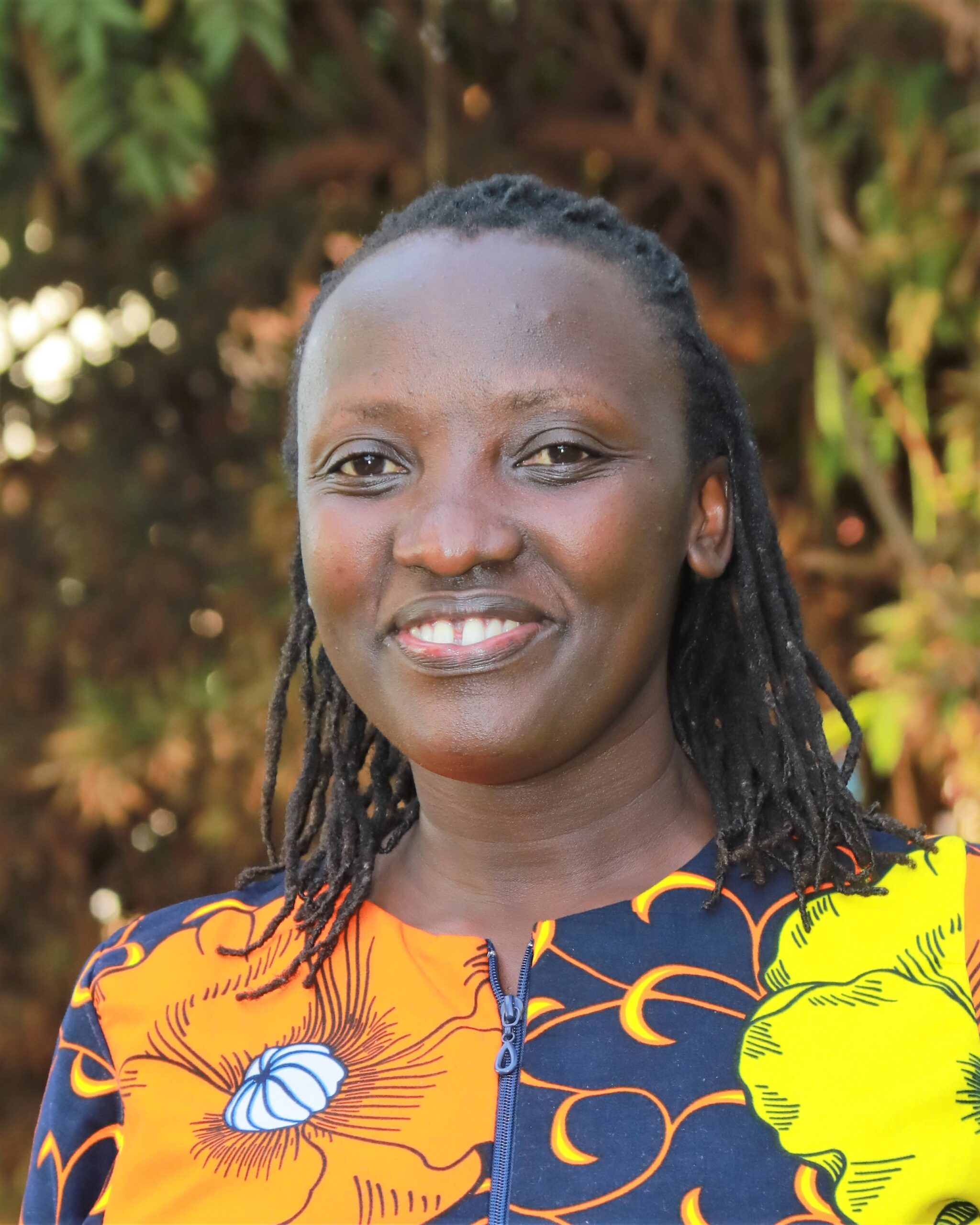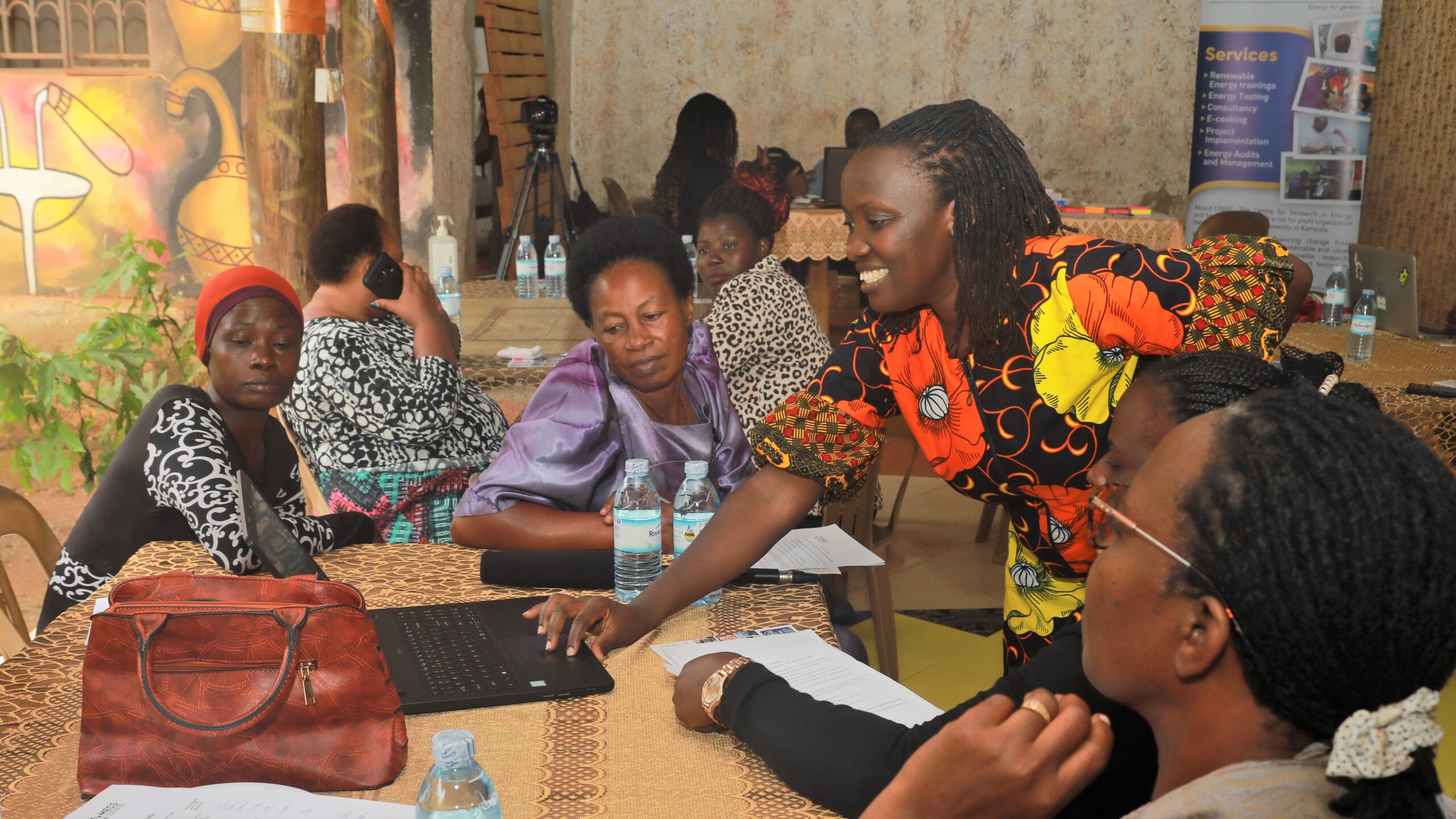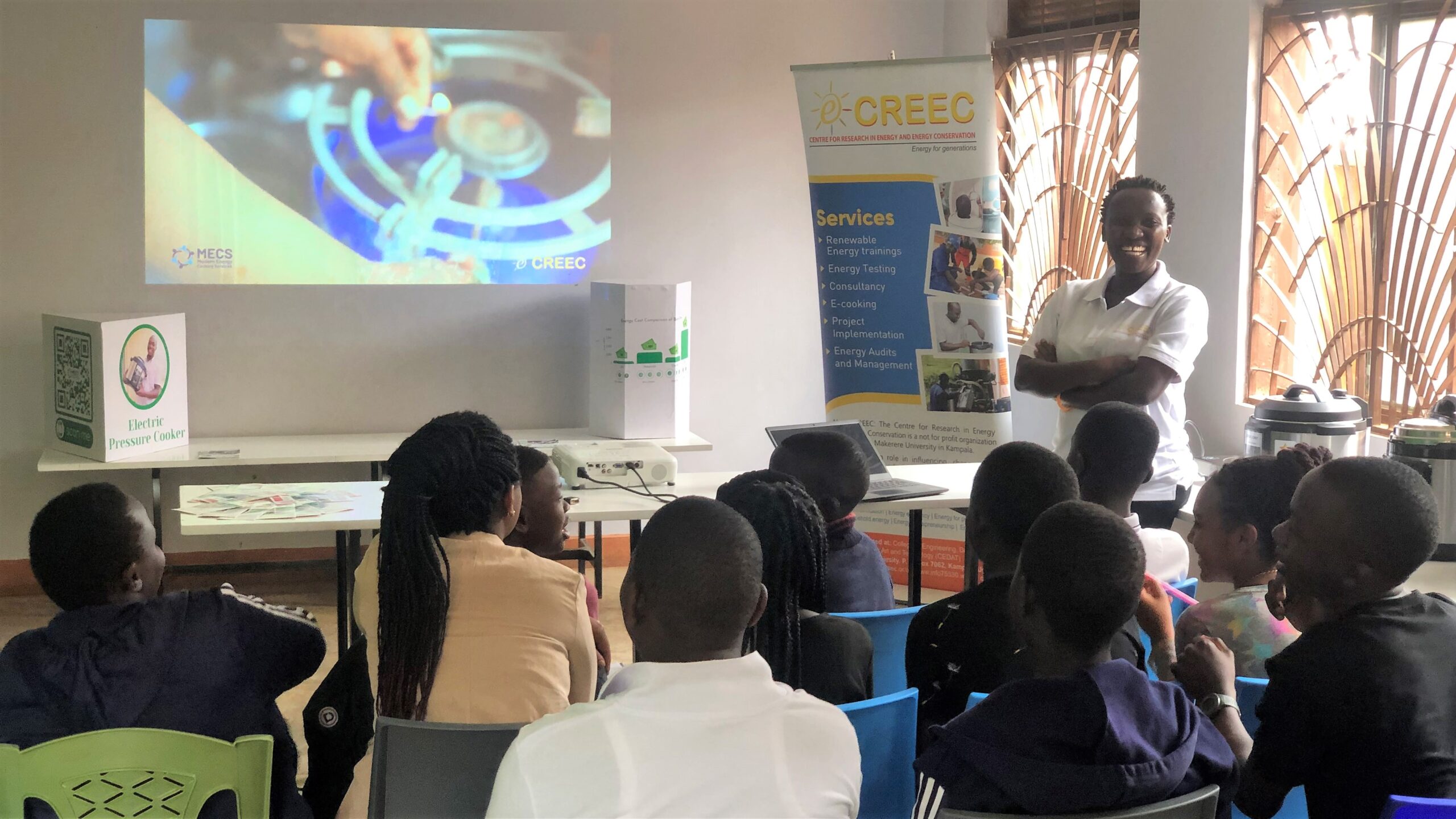Raising the Bar on Clean Cooking Standards
 Agnes Naluwagga is the Coordinator of the Regional Testing and Knowledge Centre (RTKC) at the Centre for Research in Energy and Energy Conservation (CREEC) at Makerere University in Kampala, Uganda. She is a member of the Uganda National Mirror Committee on Cooking Standards and a member of the global ISO/TC 285 technical committee on Clean Cookstoves and Clean Cooking Solutions.
Agnes Naluwagga is the Coordinator of the Regional Testing and Knowledge Centre (RTKC) at the Centre for Research in Energy and Energy Conservation (CREEC) at Makerere University in Kampala, Uganda. She is a member of the Uganda National Mirror Committee on Cooking Standards and a member of the global ISO/TC 285 technical committee on Clean Cookstoves and Clean Cooking Solutions.
The Clean Cooking Alliance spoke with Naluwagga about her experiences as a cookstove standards tester in Uganda.
This story is part of a series showcasing women leaders in the clean cooking sector.
“Clean cooking is core to all humanity!”
For Agnes Naluwagga, these words are a principle to live by. As the Coordinator of the Regional Testing and Knowledge Centre, a former Chairperson for the Uganda National Alliance for Clean Cooking (UNACC), and a founding board member for the Women in Renewable Energy Association Uganda (WREA), she deeply believes in and works toward ensuring all households have access to clean cooking.
“Growing up, I loved working with machines and knew I would be an engineer,” Naluwagga said. “After finishing my studies, I worked in Nairobi, Kenya, on strengthening small- and medium-sized enterprises in sub-Saharan Africa involved in sustainable energy investment. I was also involved in training and investment support for developing pro-poor renewable energy solutions. These experiences introduced me to the world of cookstoves.”

During Naluwagga’s orientation at CREEC, she was shown a video demonstrating the adverse effects of polluting cooking methods. “The video stayed with me and made me realize how central cooking was to every individual on Earth, no matter their race, social class, or age. It also drew attention to how ignorant we were of its effects on human health and the environment,” she said.
Stories of people using hazardous materials to cook their food keep Naluwagga motivated. “I was greatly disturbed when a lady in a focus group discussion told me that people in some rural areas lack the fuel to cook, and so they end up cooking with plastics,” she said. From these combined experiences, Naluwagga realized she had the opportunity to help people who lacked access to clean cooking solutions.
Despite initial setbacks, Naluwagga is most proud of seeing clean cooking finally receiving national recognition in Uganda. “Ten years ago, it was uncommon for a local manufacturer to pay for stove testing. Interest in research and development on cookstove technology was virtually non-existent,” she said. “Today, the CREEC-RTKC is recognized under the Laboratory Recognition Scheme of the Uganda National Bureau of Standards (UNBS) using ISO/IEC 17025:2017. With UNBS recognition, we can test cookstoves on behalf of the standards body, and our test results are officially accepted.”
Gaining this official recognition produced significant outcomes, most notably sparking awareness within the manufacturing community on cookstove standards. Naluwagga commented that, previously, Uganda’s standards were mostly product-specific and not performance-based, thereby hindering innovation and creativity. Under today’s UNBS mandate, Uganda is implementing a voluntary certification program for stove manufacturers to make stove testing mandatory.

Naluwagga feels that the biggest roadblock impeding innovation in clean cooking technologies is working individually. She believes governments must play a key role in coordinating stakeholders to create synergies, minimize duplications and ensure that the benefits reach those that need them the most.
Businesses also must step up. “User-centered technologies are critical for the transition to clean energy. Businesses and donors should address peoples’ actual needs using evidence-based research and not just impose what fits within their scope; otherwise, there will be no sustainability and continued adoption,” said Naluwagga.
Equally important, according to Naluwagga, is the need to inspire more women into the sector. “Women are the core of cooking in every household, so clean cooking should resonate with any woman at any level.” To do this, Naluwagga co-founded the Women in Renewable Energy Association (WREA) Uganda, which aims to increase women’s awareness and involvement in renewable energy through skill enhancement, continued mentorship, innovation, and partnerships.
Naluwagga stays inspired because, “only a few things are as rewarding as seeing a smile on someone’s face because you are providing a solution to a basic need in their life,” she said. “You know that you are contributing to a person’s well-being, and that your impact could be felt by over a third of the global population or more. Don’t give up on that dream.”
